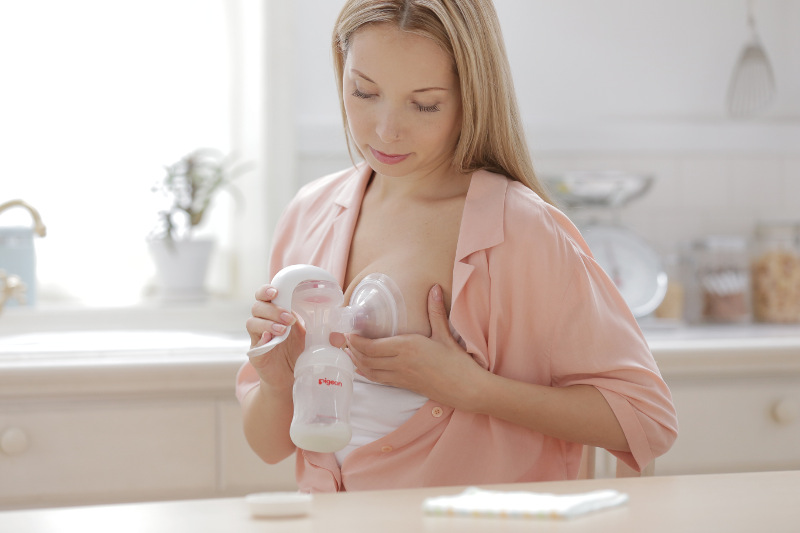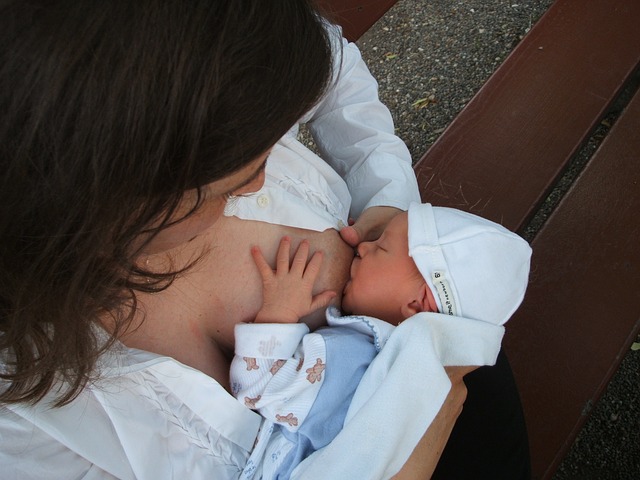Whether you’re a new or seasoned mum, breastfeeding often comes with its fair share of questions. Here are some guidelines to help you in your breastfeeding journey.
DO’S OF BREASTFEEDING

- Do breastfeed for a full 6 months if possible
A baby who is breastfeeding well does not need additional supplements before 6 months unless for special circumstances. If the baby is gaining weight and the breastfeeding relationship is going well, breastmilk is sufficient in the first 6 months. There is no conclusive evidence that prematurely starting a baby on solid food is better. Breastfeeding not only enhances the bond between mother and child, but it also provides nutrition and immunity to the baby. The suckling action of the baby also assists in the contraction of the womb.
- Do get off on a good start from Day 1
After birth, it is recommended to breastfeed your baby as soon as possible. This helps to establish your breastfeeding relationship with the new-born as well as kick start the milk production. Seek consultation from a lactation consultant or a lactation-trained nurse during your time in the ward. It may take some time to get the hang of breastfeeding positions and latching techniques thus it is always helpful to get tips on the early days when initiating breastfeeding with the baby.
For some hospitals, the lactation consultant service is offered when the mother is in the delivery ward. Do check with your hospital if you are unsure. It is good to indicate if you have chosen to breastfeed the baby exclusively so that no additional liquids or formulas are given without your permission.
- Do continue to breastfeed during engorgement and sickness

Engorgement usually goes away within 1-2 days without any treatment. Besides direct breastfeeding, you may also express your milk to relieve the tension in the nipple and store the milk for subsequent use. Expression not only stimulates the milk production but also relieves blocked ducts thus allowing a smoother milk flow.
With some exceptions, a mother who is ill should be able to breastfeed Generally, by the time the mother is displaying symptoms of fever or flu, she would have already passed on the infection to the baby. It could be your baby who has passed on the illness to you but was not symptomatic due to breastfeeding.
Continued breastfeeding will protect the baby from infection and he is likely to get less sick. In the same way, breastfeeding is supported for infant illness and offers comfort to the infant. With few exceptions, breastmilk is ideal for a baby’s gut infection e.g. when he has diarrhoea and vomiting. Of course, situations are not absolute, so do check with your paediatrician when in doubt.
- Do plan in time for preparation of the caregiver
You cannot always be by the side of your child. Do prepare someone else who can look after your baby when you need to be away. Be it your husband, a relative, or a caregiver at the childcare, it is vital that your caregiver is supportive and aligned with breastfeeding. Give time for this transition to happen.
Have a discussion with your caregiver and if required, educate and explain how you would like your baby to be cared for. This will allow better buy-in from the caregiver as well as reduce misconceptions between both parties in the caregiving relationship. If you are disturbed by the opposing ideas or the caregiving practice at the centre, there is also time to look for another.
- Do know where you can get support
The breastfeeding journey can be a very challenging yet fulfilling journey. There may be moments of stress and challenges and the experience vary from person to person. Mothers need to know there are various resources they can tap on. There are several Breastfeeding Groups online where mothers can engage with other mothers and support one another.
Most hospitals also provide lactation and post-partum care services. If you face problems with breastfeeding, breast issues (eg. sore nipples, pain when breastfeeding) and would like to seek out a consultant; you can reach out to either private practice lactation consultants or hospital-based ones. For online resources, most hospitals do have breastfeeding information portals for new parents. Dr Jack Newman has extensive online resources which include both information leaflets and videos on breastfeeding which has been recommended for parents.

DON’TS OF BREASTFEEDING
- Don’t assume all doctors know you are breastfeeding or support breastfeeding
Do inform your doctor that you are breastfeeding should you require any medications. Some medications enter the milk and may be contraindicated for breastfeeding. Some clinics may be unsure and just recommend the mother to stop breastfeeding “just in case” until recovery. In most situations, physicians are able to check against resources and prescribe alternative medications.
Most medications also come with prescription leaflets which can be referenced to see if suitable for administration to pregnant or lactating mothers. It can be easy to assume when you have been breastfeeding for a longer period if you are visiting different doctors or buying drugs over the counter.
- Don’t be discouraged in the first few days of breastfeeding
The first milk is dense and is called colostrum. In the early days normally only a small quantity may be produced. According to Dr Jack Newman, usually, it is not so much that the mother does not have enough milk, but more so that the baby does not get the milk that the mother has. There is no need to “pump it out to see how much you have” as this is certainly not a reflection of the mother’s ability to breastfeed. Instead of being too concerned about the volume, focus on getting a proper latch so that the baby can feed on the milk that you have. Milk production acts on a demand and supply principle, and by persevering with breastfeeding, the milk production will build up into a stable supply over time.
- Don’t introduce the baby to bottle feeding too early
Early introduction of the pacifier or bottle-feeding may interfere with breastfeeding. The baby may be confused as the sucking actions differ. Time should be given for good breastfeeding practices (latching, sucking) to be formed before bottles are introduced. Once the breastfeeding relationship has been established, the baby can be adjusted to feeding expressed breastmilk from a bottle. It is recommended to introduce the bottle after 4 – 6 weeks. The frequency can be gradually increased and this transition adjusted if you are returning to work.
By Som Yew Ya.
This article is part of Breastfeeding with Love campaign, initiated by The New Age Parents and New Age Pregnancy.
Join the Breastfeeding with Love Group to find out more and be part of our breastfeeding online community!
* * * * *
Like what you see here? Get parenting tips and stories straight to your inbox! Join our mailing list here.
Want to be heard 👂 and seen 👀 by over 100,000 parents in Singapore? We can help! Leave your contact here and we’ll be in touch.


























































